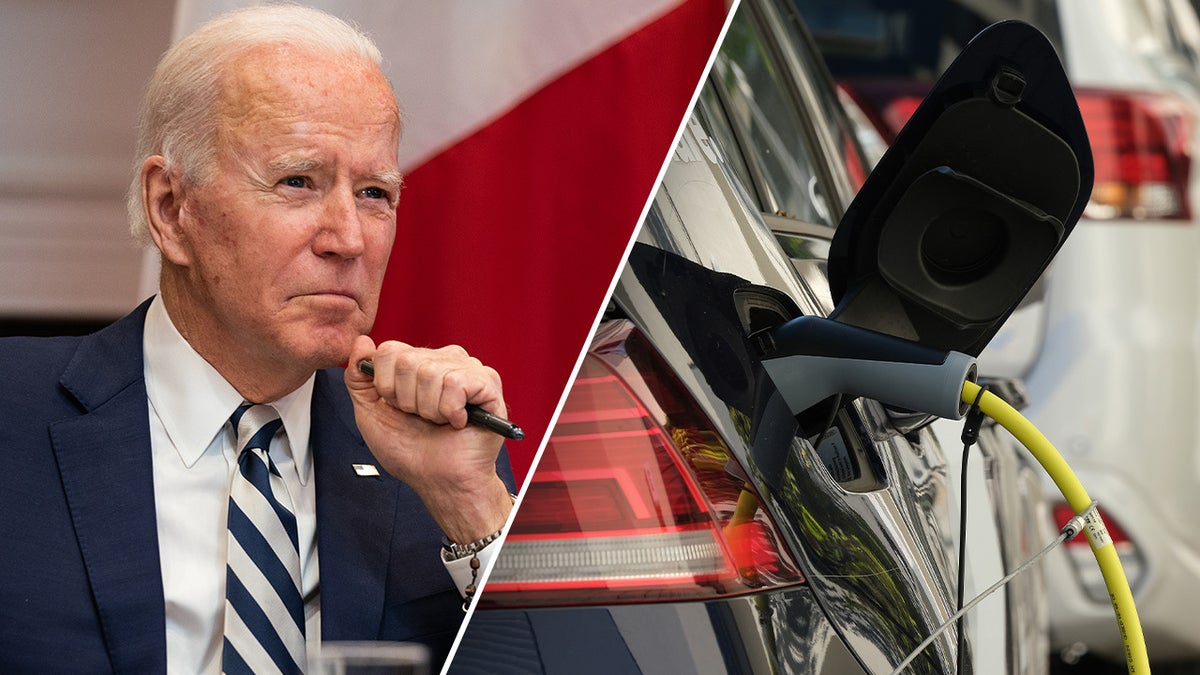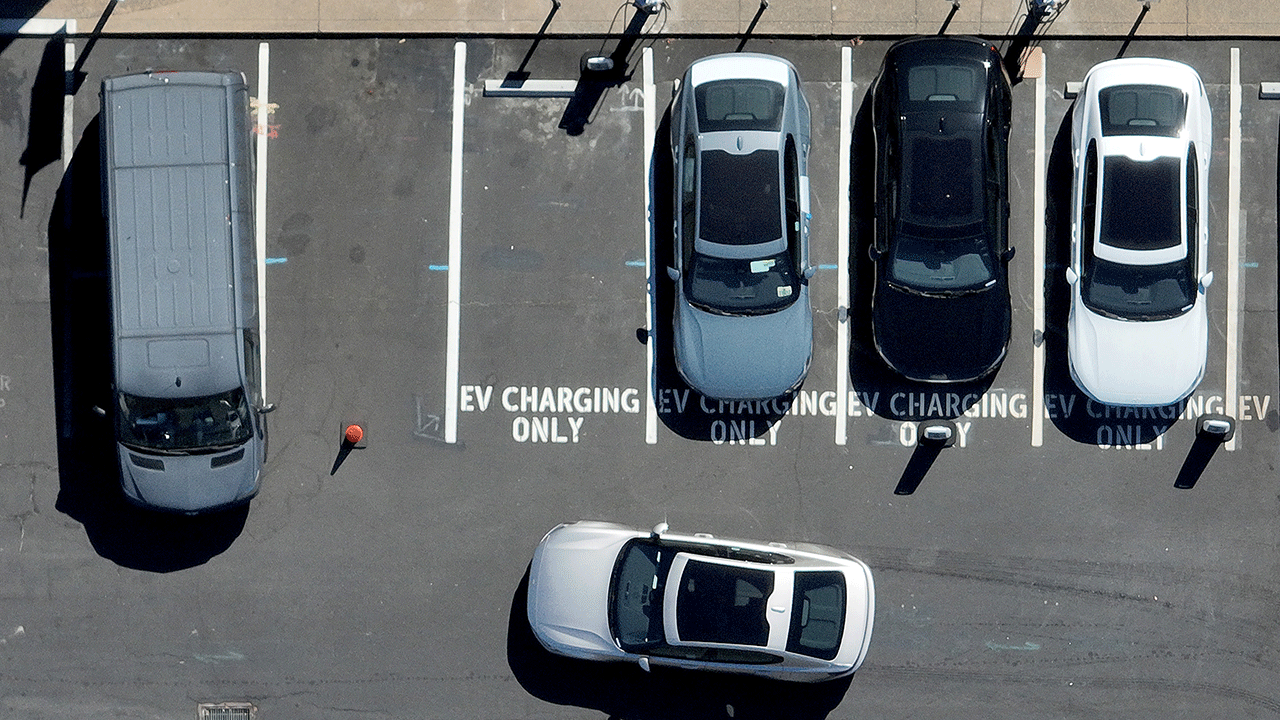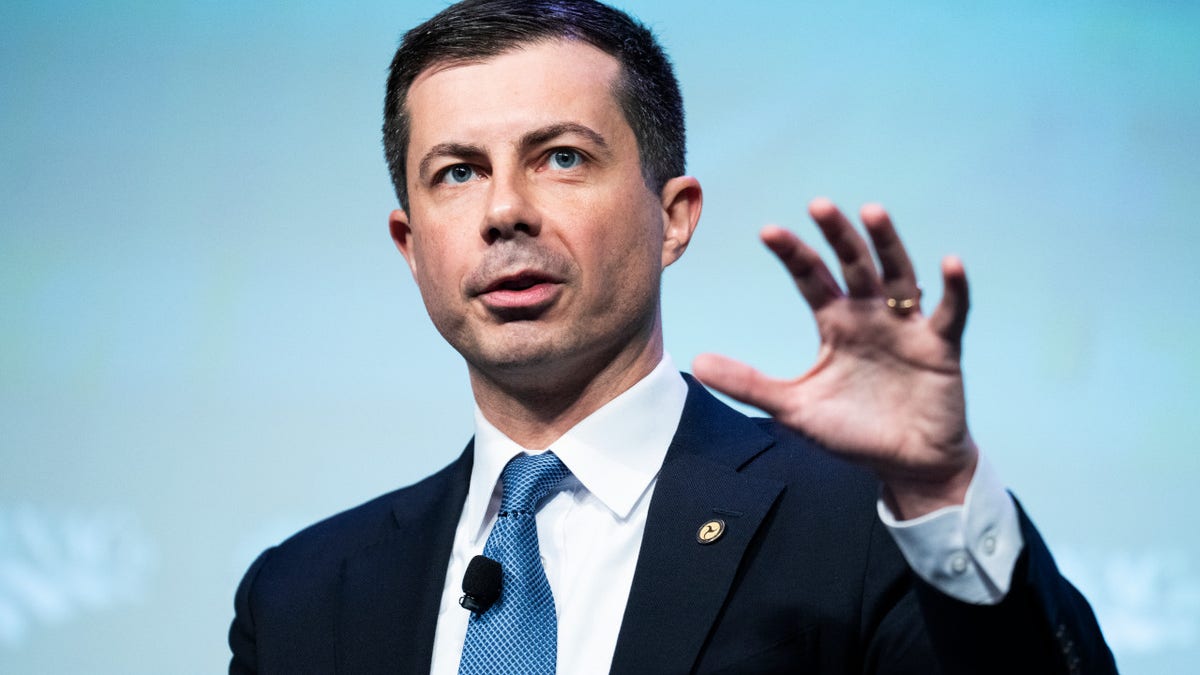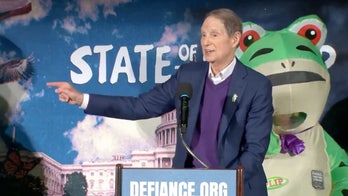Buyers just say no to electric vehicles
And dealers ask Biden where they're supposed to put the glut.
President Biden's trillion-dollar infrastructure package included billions of dollars to fund an ambitious plan to construct a massive nationwide electric vehicle (EV) charging network, but has yet to yield a single charger two years later.
Overall, the 2021 Infrastructure Investment and Jobs Act (IIJA) earmarked $7.5 billion for electric vehicle chargers — $5 billion for the so-called National Electric Vehicle Infrastructure (NEVI) Formula Program and another $2.5 billion in discretionary funds for charging and fueling infrastructure — as part of the federal government's ambitious effort to expand EV ownership and reduce carbon emissions.
However, just $101.5 million has been distributed for seven state NEVI awards and just two projects, located in Columbus, Ohio, and Pittston, Pennsylvania, have begun construction, according to the Joint Office of Energy and Transportation which was established by the IIJA. At its current pace, the billion-dollar program, designed to build out a network of 500,000 chargers and award $5 billion in five years, will fund a handful of projects and dish out just $250 million in that time frame.
"Too many members of Congress think ‘Field of Dreams’ is a blueprint for infrastructure: build it and they will come. No, they won’t come. Because Americans didn’t want EVs when this wasteful spending was passed and they don’t want them now, even with all the massive subsidies and incentives to buy EVs," Daren Bakst, the director of the Competitive Enterprise Institute's Center for Energy and Environment, told Fox News Digital.

Developing a massive electric vehicle charging network is vital to achieve President Biden's goal of ensuring 50% of car purchases are electric by 2030. (Anna Moneymaker/Pool/Getty Images | Sean Gallup/Getty Images)
Bakst added that car dealers are continuing to warn of waning interest in EVs and manufacturers are rethinking their EV strategies. Last month, in a letter to President Biden, a coalition of thousands of car dealers from around the country said they opposed any EV mandate, saying "enthusiasm has stalled" for EVs and noting their lots are full of EVs consumers don't want.
Bakst further called for Congress to fully defund the NEVI program to save taxpayers money.
HOUSE SET TO HOLD VOTE ON BILL STRIKING DOWN BIDEN'S EV PUSH: 'RADICAL AND UNATTAINABLE'
"Market realities influence the states that play a central role in whether EV chargers will be built," Bakst continued. "Therefore, it shouldn’t be a surprise that no EV chargers have been built using the $7.5 billion. States don’t want to waste time and money on building EV chargers that will fail."
"The lack of demand for EVs is part of the equation, but so too are the technological shortcomings of EVs and the rural nature of many states," he said. "Then there’s also the Biden administration imposing inflexible and stringent federal requirements, something that states have said will cause problems in implementing the NEVI program. As it is, more than half of the states have not even started soliciting bids for EV chargers."
According to the Joint Office of Energy and Transportation, the seven public conditional NEVI awards were announced in Ohio, Hawaii, Maine, Colorado, Pennsylvania, Alaska and Kentucky. And 17 states are in the process of soliciting more proposals and applications for future EV charging station projects, a process that can take months or years.
"Under the Biden-Harris Administration, all 50 states plus Puerto Rico and D.C. have received historic funding to advance, for the first time in the nation’s history, the buildout of a convenient and reliable national charging network," a Joint Office spokesperson told Fox News Digital.

According to Cox Automotive data, factoring in generous tax credits, the average transaction price for electric cars was $53,469 as of July, while the average price of gas-powered vehicles was $48,334. And the Department of Energy reported that the average range of model year 2021 gasoline vehicles was 403 miles, compared to the median 234-mile range of model year 2021 EVs. (Justin Sullivan/Getty Images)
"Since the President took office there has been a 70% increase in charging ports now in place, and as states move quickly and deliberately to energize even more EV chargers stamped Made-in-the-USA, Americans can be confident that we are on track to meet our ambitious goals," the spokesperson added.
Under the IIJA's NEVI Program, funding is designed to be distributed to all 50 states, which then award funding to private developers who construct the charging stations.
In addition to the goals of distributing all $5 billion earmarked for the program by 2026 and building 500,000 total chargers, the program is designed to ensure a charger is built at least every 50 miles along major U.S. highways.
"We need to move much faster," said Ben Prochazka, the executive director of the Electrification Coalition, a nonprofit group that advocates for the adoption of EVs on a mass scale.
"We applaud the seven states that have awarded funding," he continued. "We continue to urge states to accelerate their work to issue [requests for proposal] and work with vendors to create a national charging network that is critical to accelerating electrification."
FORD DRAMATICALLY SCALES BACK EV PLANT AMID PLUMMETING SALES IN BLOW TO BIDEN'S GREEN ENERGY GOALS
Meanwhile, the Columbus project touted by the Biden administration as the first success story of the NEVI program broke ground in October, but isn't expected to be operational until early next year, more than 24 months after the IIJA was passed and signed into law in late 2021. The Ohio Department of Transportation said the project will consist of four chargers, which may take up to 40 minutes to give an EV an 80% charge.

"The President’s Bipartisan Infrastructure Law will help us win the EV race by working with states, labor, and the private sector to deploy a historic nationwide charging network that will make EV charging accessible for more Americans," Transportation Secretary Pete Buttigieg said in February 2022. (Tom Williams/CQ-Roll Call, Inc via Getty Images)
The Pittston project will also consist of four 350-kilowatt charging ports located in a highway service area.
Using NEVI funds, Ohio and Pennsylvania are both planning to construct dozens of additional fast-charging stations statewide by the end of 2024.
And, in addition to the NEVI program, the $2.5 billion earmarked under the Department of Transportation’s Charging and Fueling Infrastructure (CFI) Discretionary Grant Program has yet to be distributed or awarded anywhere. The agency announced in March that it would begin accepting applications under CFI's two sub programs.
CLICK HERE TO GET THE FOX NEWS APP
"Thanks to the record federal investment in President Biden’s Investing in America agenda, the number of publicly available charging ports has grown by nearly 70% and EV sales have tripled since he took office," White House spokesperson Robyn Patterson told Fox News Digital.
"So far, states like Ohio and Pennsylvania have already broken ground on their federally funded chargers, and thousands more are on the way across the country," she continued. "We’re on track to build out a national network of 500,000 publicly accessible chargers by 2026 — fulfilling the President’s campaign goal four years early."















































